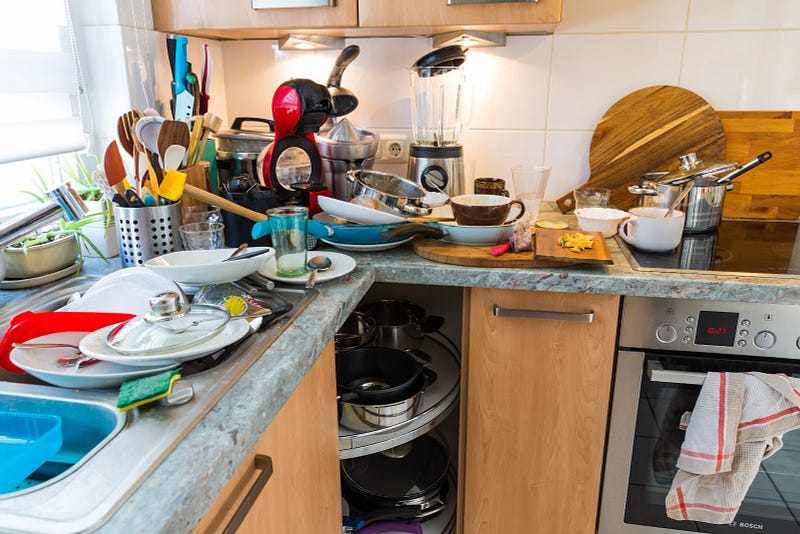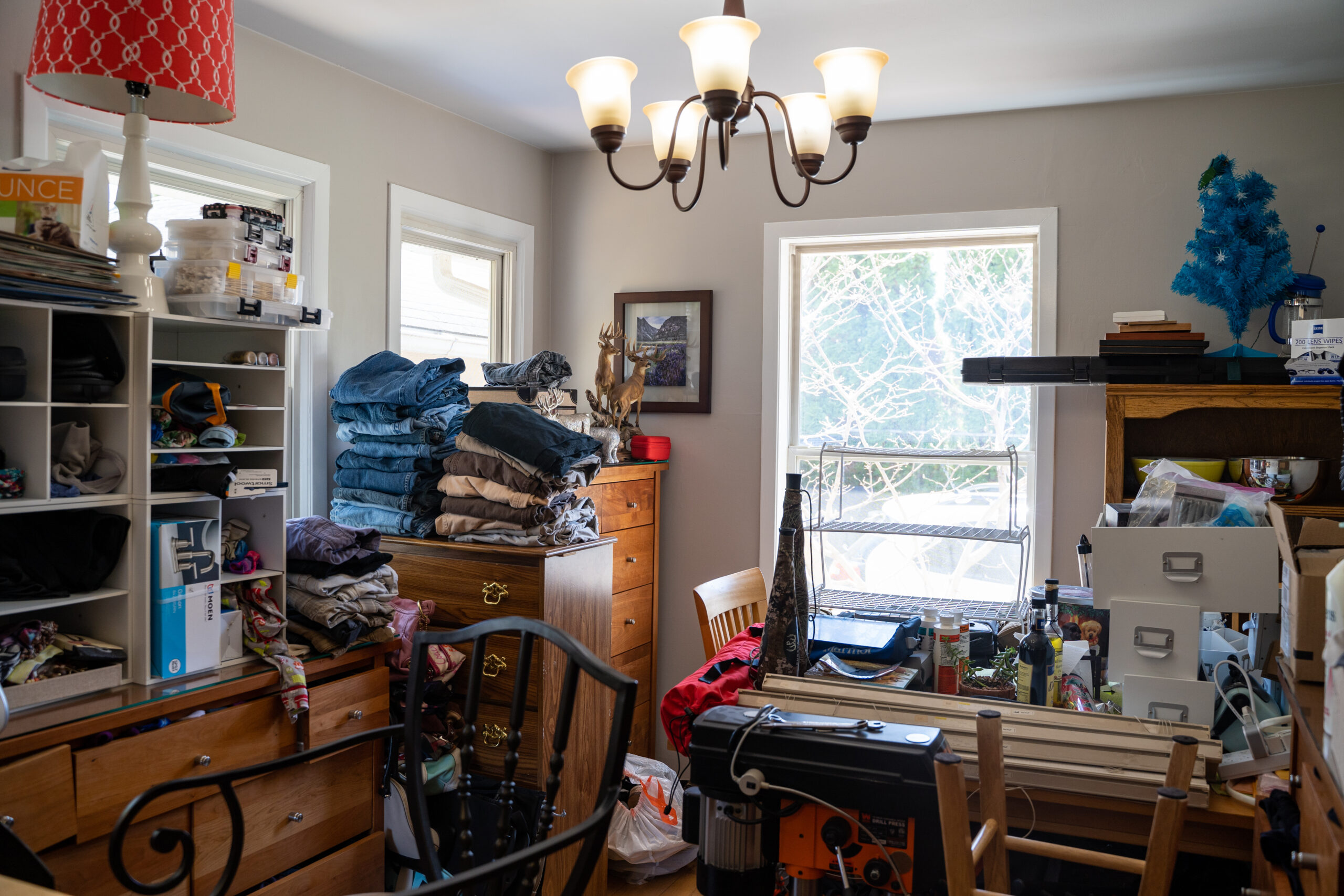In the hustle and bustle of everyday life, our homes can sometimes reflect our busy schedules — cluttered, chaotic, and far from the peaceful sanctuaries we desire. Yet, the state of our living environments can significantly influence our mental and emotional well-being. Understanding the psychological benefits of cleaning can motivate us to embrace home decluttering services as a chore and a vital component of our health and happiness.
The Connection Between Clutter and Stress
Research consistently shows a direct correlation between a cluttered home and heightened stress levels. A study from UCLA’s Centre on Everyday Lives and Families found that women who perceive their homes as cluttered experience elevated cortisol levels, a stress hormone. This biological response can lead to feelings of anxiety and overwhelm. Clutter bombards our minds with excessive stimuli, causing our senses to work overtime on stimuli that aren’t necessary or important. Decluttering can help minimise this stress, creating a calm atmosphere that promotes relaxation and clean home happiness.
Enhanced Focus and Productivity
A cluttered environment is a distracting environment. Excess items can make it difficult to focus on the task at hand, reducing our cognitive resources and impairing our ability to process information. We remove these distractions by decluttering, allowing for better concentration and increased productivity. This is particularly beneficial in home office spaces, where focus is paramount. A study published in the Journal of Neuroscience revealed that multiple stimuli present in the visual field at the same time compete for neural representation by limiting people’s ability to focus and process information efficiently.
Boosts Mood and Self-Esteem
The act of cleaning and organising our space can lead to a profound sense of accomplishment. This not only boosts our mood but can also enhance our self-esteem. A clean home reflects self-care, and maintaining an organised space affirms our worth and capability. Furthermore, a tidy environment can foster a more positive mood, reduce feelings of irritability, and help us maintain a more optimistic outlook on life.

Promotes Healthy Sleep Patterns
A decluttered and organised bedroom can significantly impact the quality of your sleep. A study from St. Lawrence University found that individuals who sleep in cluttered rooms are likelier to suffer from sleep disturbances, including difficulty falling asleep and being disturbed during the night. We can improve our sleep quality and duration by creating a serene and orderly environment, free from distractions and anxiety-provoking clutter.
Encourages Creativity
Clean spaces are breeding grounds for creativity. With fewer distractions and less chaos, our minds can think creatively and flow more freely. This is especially important in spaces where creativity is needed, such as kitchens, studios, or any workspace. Decluttering doesn’t mean stripping your environment of personality but refining the space to enhance its aesthetic and functional purposes.
Fosters Better Relationships
Clutter can affect our individual mental health and strain relationships with those we live with. Disagreements over the state of the home are common in households, and clutter can add an unnecessary source of tension. Maintaining a decluttered home can create a more welcoming environment and reduce the potential for conflicts, thereby nurturing healthier relationships.
Steps to Declutter Your Home
- Start Small: Begin with manageable areas — like a single drawer or shelf — to avoid feeling overwhelmed.
- Use the Four-Box Method: As you sort through items, designate four boxes for “keep,” “donate,” “recycle,” or “throw away.”
- Implement a One-In-One-Out Rule: To maintain decluttering gains, make it a habit to remove one old item for every new item you bring into your home.
- Set Decluttering Goals: Create realistic, specific goals, such as decluttering one room per month.
- Maintain Regular Cleaning: Regular cleaning — such as weekly dusting and vacuuming — can keep your space fresh and organised.
The psychological benefits of cleaning are clear: reduced stress, increased productivity, better sleep, enhanced creativity, and improved relationships. By taking proactive steps towards decluttering, you can transform your home into a sanctuary that supports your mental health and overall well-being. So, roll up your sleeves and start decluttering — not just for a cleaner home but for a clearer mind.

Ready to Experience the Benefits of a Decluttered Home?
FAQs about our Service:
What are the psychological benefits of a clean home?
A clean home can lead to reduced stress, improved focus, and enhanced relaxation. It creates a serene environment that promotes mental clarity and a sense of well-being.
How does clutter affect mental health?
Clutter can lead to feelings of anxiety and overwhelm. It creates a chaotic environment that can distract and frustrate, impacting your overall mental health negatively.
Can organising my home help with anxiety?
Yes, organising your home can help reduce anxiety by creating a more structured and calming environment, making it easier to relax and feel in control.
Why is a tidy home important for productivity?
A tidy home minimises distractions, allowing for better focus and increased productivity. It provides a clearer space for working and thinking.
How can a clean home improve sleep quality?
A clean bedroom in particular can create a peaceful environment conducive to restful sleep, reducing light, noise, and allergens that can disrupt your sleep.
What are some simple steps to start decluttering my home?
Begin by tackling one room at a time, setting aside items you no longer use or need, and organising remaining belongings by category for easier access.
Does a clean home environment impact physical health?
Yes, a clean home reduces exposure to allergens, dust, and germs, supporting better physical health and enhancing respiratory and overall wellness.
How can regular cleaning improve mental clarity?
Regular cleaning can clear physical and mental clutter, helping to sharpen your focus and improve decision-making skills, leading to better mental clarity.
Why do people feel happier in a clean home?
People feel happier in a clean home due to the reduced stress and anxiety that clutter and mess can cause, fostering a positive and uplifting atmosphere.
What is the best frequency for cleaning to maintain mental well-being?
Establish a regular cleaning schedule, such as weekly or biweekly sessions, to maintain order and tranquility within your home consistently, supporting mental well-being
Don’t wait to reclaim your space and your peace of mind. Contact us today at 03 8583 9102 or email us at info@cleanhousemelbourne.com.au to learn more about our services and how we can tailor them to meet your needs.
Rediscover the joy of a clean, organized home with Clean House Melbourne, where your wellness is our top priority!


 Email Us
Email Us Whatsapp
Whatsapp


